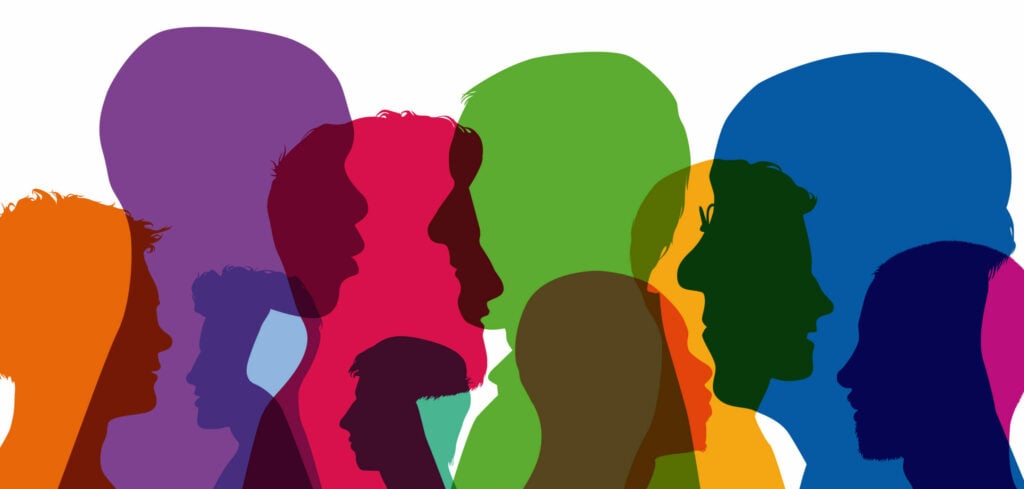How patriarchy and toxic masculinity hurt men
Reviewed by Robert Bogenberger, PhD

Patriarchy is a set of values, relationships, and beliefs that offer men authority and control over others.1 It’s a common, longstanding way of thinking that supports gender-based power imbalances throughout history and around the world.


In patriarchal environments, a culture’s traditionally masculine qualities are valued more than feminine ones. It’s also considered normal for women, girls, and LGBTQIA+ people to have less access to power, respect, safety, and autonomy. Signs of patriarchy include gender imbalances in political representation and business; the pay gap between women and men; gender bias in media; laws that criminalize women and girls’ reproductive choices; anti-LGBTQIA+ attitudes; and high rates of harassment, sexual assault, violence, and domestic abuse targeting girls, women, and gender-nonconforming people.2, 3, 4, 5, 6
Traditional gender expectations are an important support structure of patriarchies, and they tend to be inflexible. Men and boys in a patriarchy experience steady, lifelong pressure to fit their community’s masculine norms, even if some of those norms are destructive.
“Toxic masculinity” is a term whose meaning has changed over time, but today it’s used to describe violent, destructive, or anti-feminine behaviors that people accept and even teach as “natural” for men and boys, including:
- Treating women and girls as sex objects, second-class citizens, or less capable
- Belittling or undervaluing traditionally feminine traits or behaviors in people of any gender
- Treating men and boys who aren’t traditionally masculine with contempt
- Expressing homophobia and transphobia (treating LGBTQIA+ people with disrespect or prejudice)
- Using violence and aggression to gain control, wield power, or express difficult feelings
- Committing or excusing sexual harassment or assault
- Feeling shame about seeming vulnerable or expressing “unmasculine” emotions like fear, sadness, or worry
- Refusing to seek or accept help or care because it’s seen a form of weakness
These norms and behaviors can be defining forces in families, religious communities, workplaces, politics, and elsewhere. Men who don’t conform can face ridicule, rejection, hostility, and discrimination.
If patriarchy benefits men, how can it also harm them?
Patriarchal thinking puts traditionally masculine men at the top of a hierarchy of value and control, but it can comfortably incorporate other biases—ableism, classism, or white supremacy, for instance—that offer one group dominance over others. Because of this, men themselves can be devalued in patriarchal cultures.
Living with harmful gender norms and expectations can affect men and boys’ well-being in ways that include:
- Anxiety, depression, and other health concerns: If it doesn’t feel okay to acknowledge or show fear, sadness, worry, or other forms of vulnerability, you may try to ignore or suppress those feelings, which can worsen anxiety, depression, and other mental health struggles. If you won’t seek professional care when you’re sick, injured, or struggling emotionally, it can make your own pain or distress last longer. In a recent large study, men who conformed to toxic masculine norms like “power over women” and “self-reliance” tended to have poorer mental health outcomes and were also less likely to seek help.7
- Social isolation: If you don’t feel comfortable connecting emotionally with others—or if you’ve developed domineering, inconsiderate, or violent ways of interacting with people—it can leave you isolated and lonely.
- Internalized homophobia and transphobia: Pressure to conform to traditional masculine gender roles, and fear of the consequences of being different, can lead you to believe nontraditional gender expression is bad or problematic—even (or especially) in yourself.
- Substance abuse: Men are more likely than women to misuse drugs or alcohol, and they’re more likely to die from an overdose.8
- Violent behavior: Around the world, men are likelier than women to commit most kinds of interpersonal violence—including intimate partner violence, assault, rape, and murder—and research suggests that harmful norms around masculinity underlie this violence.9
- Suicide: Men are more than three times likelier than women to die by suicide.10 If you’re in crisis, help is available 24 hours a day, 7 days a week: Call the 988 Lifeline at 988 or 1-800-273-TALK (1-800-273-8255).
Working toward equality
Patriarchal values and norms are widespread, but not inevitable. Civil rights activists around the world have spent generations working to end gender-based inequality and achieve social, political, cultural, and economic equality for everyone. Yet plenty of work is still needed to keep changing destructive beliefs and attitudes in ourselves and our communities.
When people value and work toward gender equality and justice, the outcomes often benefit people of all genders:
- For the past four decades, Rwanda’s government has prioritized women’s sexual and reproductive rights, including access to health care services and contraception. In addition to lowering the country’s birth rate from 8.3 to 3.8 live births per woman, these improvements helped maternal mortality fall by 78% between 1990 and 2015.11, 12
- In 2008, a community intervention in Kampala, Uganda, sought to change attitudes and behaviors that contributed to gender inequality. This action led to a 52% reduction in self-reported incidents of intimate partner violence among women as compared to control communities.13
- A 2007 survey on relationship health among US undergraduates showed that women reported healthier relationships if they had a partner who held feminist views.14 In the same survey, men who also had feminist partners reported greater stability in their relationships and higher levels of sexual satisfaction.
How therapy can help
Depending on your community’s norms around therapy, you may face stigma about seeing a counselor. It can be useful to remember that it’s an act of courage to seek help, especially when it feels difficult.
A mental health professional can give you tools and techniques to improve your life, understand and cope with your challenges, and strengthen your relationships. No matter your gender, a therapist who’s a good fit can help you:
- Develop healthy responses to stress. Therapy can help you learn to self-regulate—observe, manage, and adapt your emotions and behaviors to suit different situations—and manage your stress in positive ways, so you can choose healthy responses to situations that usually trigger anxiety, stress, anger, or frustration.
- Practice self-care. Prioritizing your mental, emotional, social, and physical health is something you can learn in therapy and also do on your own. It includes getting good rest, eating well, staying physically active, socializing, seeking out care when you’re hurting or sick, and making time for activities that bring you joy.
- Learn to have compassion for yourself. Self-compassion is associated with lower stress and fewer depressive symptoms.15 It may also indirectly help improve your physical health by empowering you to adopt healthy lifestyle habits and behaviors.
- Explore, acknowledge, and express feelings in healthy ways. Strengthening your emotional intelligence, learning healthy interpersonal habits, developing nonviolent communication skills, and learning to express challenging feelings constructively will improve your relationships.
- Decide whether stereotypes fit you. Healthy masculinity, femininity, and gender can look many different ways. Giving yourself (and others) freedom to discard gender stereotypes or norms can broaden your perspective, your relationships, and your support network.
- Develop and respect good boundaries. Therapy can help you learn to set healthy boundaries, identify and respect other people’s boundaries, and prioritize consent in your interactions, especially in romantic or sexual relationships.
- Consider different perspectives. Developing empathy and compassion can help you understand an issue from points of view beyond your own. This can help you relate better to other people, build your community, and work with others to find appropriate responses to challenging situations.
If you can’t access therapy right now, there are other ways to get support. Joining a support group, learning mindfulness or meditation techniques to practice at home, opening up to a trusted friend or family member, downloading a mental health app, or writing down your thoughts are all ways to start working toward a balanced, authentic version of yourself.
There’s nothing unhealthy about traditional masculine qualities like being strong, capable, assertive, or a provider for your family. With support, it’s possible to confront and move beyond other, more toxic components of masculinity. Learning to overcome gender bias, care for yourself, express your honest feelings in healthy ways, and develop mutually fulfilling relationships can help boost your mental health.
If you or someone you know is struggling, browse our directory to find a licensed therapist near you.

Sources
1 https://www.sciencedirect.com/topics/social-sciences/patriarchy/
2 https://www.representwomen.org/2022_gender_parity_index
3 https://www.wbcollaborative.org/wp-content/uploads/2022/09/Women-CEOS-in-America_2022-0920221847.pdf
4 https://pubmed.ncbi.nlm.nih.gov/35004942/
5 https://hbr.org/2019/06/tackling-the-underrepresentation-of-women-in-media/
6 https://www.rainn.org/statistics/victims-sexual-violence/
7 https://pubmed.ncbi.nlm.nih.gov/27869454/
8 https://nida.nih.gov/publications/research-reports/substance-use-in-women/sex-gender-differences-in-substance-use/
9 https://www.sciencedirect.com/science/article/pii/S0277953615301635/
10 https://afsp.org/suicide-statistics/
11 https://www.unwomen.org/sites/default/files/Headquarters/Attachments/Sections/Library/Publications/2019/POWW-2019-Fact-sheet-Sub-Saharan-Africa-en.pdf
12 https://www.jstor.org/stable/26493908
13 https://www.sciencedirect.com/science/article/pii/S0145213415003610/
14 https://link.springer.com/article/10.1007/s11199-007-9319-9/
15 https://www.ncbi.nlm.nih.gov/pmc/articles/PMC5779931/
About the author
The editorial team at therapist.com works with the world’s leading clinical experts to bring you accessible, insightful information about mental health topics and trends.
Related articles

Eating disorders in men and boys
Boys and men make up 25% of reported cases of bulimia and anorexia, but...

Dads get postpartum depression, too
We tend to connect PPD with the person who gives birth, but it can happen to...

To end violence against teen girls, start with teen boys
Teen girls are reporting more assaults, mainly by boys their age. How can we...

